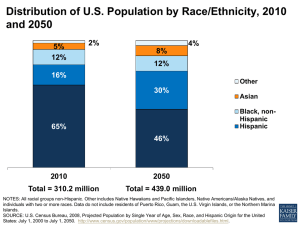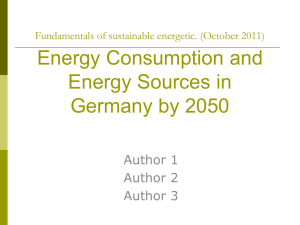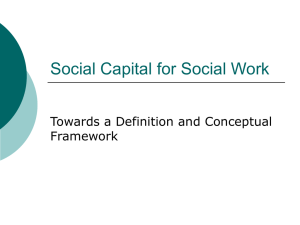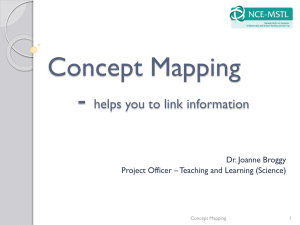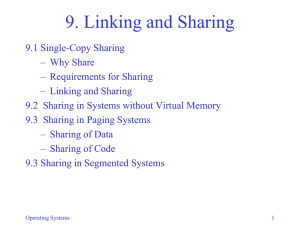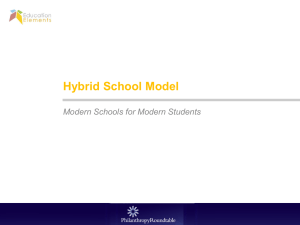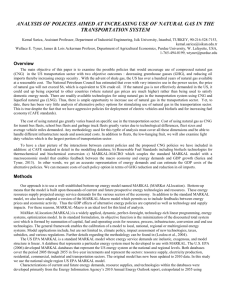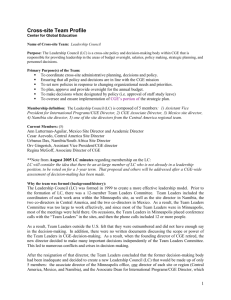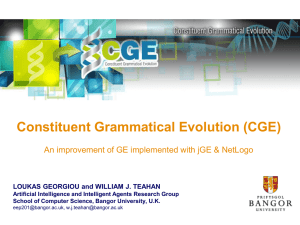Linking the models
advertisement
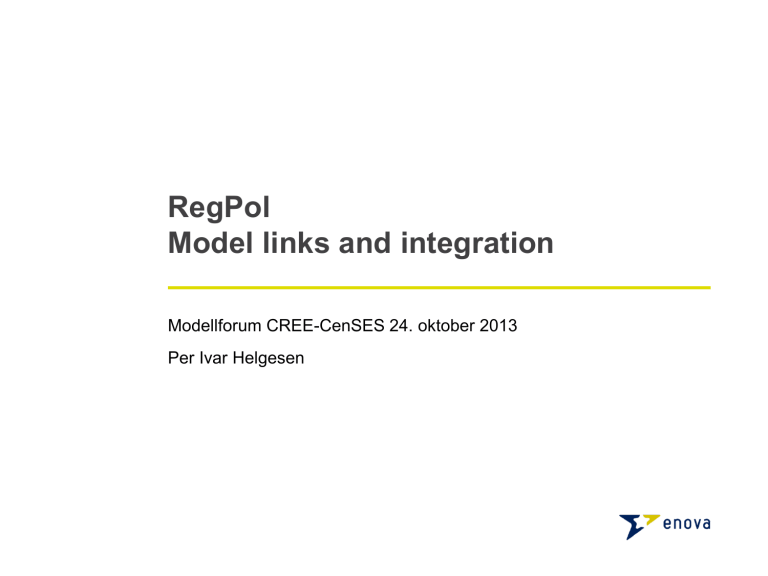
RegPol Model links and integration Modellforum CREE-CenSES 24. oktober 2013 Per Ivar Helgesen Project structure Development of technologies Use of energy carriers Regional and national level TIMES National Macro models (MSG, MODAG) Multiregional SCGE model Local model (PANDA) Linking - Top down Bottom up Top down models • Economics • High level of abstraction • The economy as a whole Bottom up • Engineering • Technology rich • Physical laws of nature Top-down models Bottom-up models Describe the interaction between the energy system and the econcomy as a whole Represent the energy system with great detail Do not contain technological detail, representing the energy sector in aggregate form Ignore the full macroeconomic feedbacks of different energy system pathways 7 Foto: Stanislav Jelen Hybrid… Hybrid modeling (Hourcade et al 2006) MSG-TECH Hybrid model • Bygget på den generelle likevektsmodellen MSG6 • Representerer teknologiske muligheter ut over dem som eksisterer i dag, slik som energisystemmodeller 9 10 Different types of linking • Separate models • Soft linked models • Hard linked models • Integrated model (automated data exchange) Integration possible? TIMES Linear program CGE Complementarity 12 The Bigger Picture Complementarity Problems KKT conditions NLP LP convex QP Other non-optimization based problems e.g. spatial price equilibria, traffic equilibria, Nash-Cournot games Source: Prof. Steven Gabriel Separate models Top-down and bottom-up models Hybrid models Top-down CGE and bottom-up optimisation models linked Integrated model Complementarity problem Modular hybrid models Research question Will linked models and an integrated model produce the same solutions? Which conditions must be fulfilled? 15 What's the point? • These are different models that complements each others • By linking the models, both should improve their accuracy – and the existing expertise is better utilised • Linking the models provides a richer hybrid model for analysis – which consequently should lead to improved decisions and decision support • The linked models calculates other results than the individual models do • It could be easier to manage the expertise by linking the (stand-alone) models instead of integrating them. It is probably easier to test and develop the models separately. How to do it? Translation • Separate models • Soft linked models Physical flows • Hard linked models • Integrated model Monetary values (automated data exchange) Industries Model dimensions Subnational regions in Norway TIMES Norway Regional accounts statistics Matcing industries in the models Services, industries and industrial transportation TIMES Norway demand sectors Sector # subsectors Industry 11-14 Demand type Electricity, heat, raw material # demand data per region Sum # demand data 33-42 231-240 Households 5 Electricity, heat 10 70 Tertiary 8 Electricity, heating, cooling 21 147 Primary - Electricity, heat, raw material 3 21 Transport 8 Vehicle-km, tonne-km, energy demand 8 56 75-78 534 Total 33-36 useful Time dimension – granularity • TIMES-Norway - Day/night, weekend, seasons 260 timeslices (52*5) Dynamic model Perfect foresight • CGE-models - Yearly numbers from national accounts - Often static models - Dynamic recursive, intertemporal paths between equilibria Time dimension – using a static CGE 2050 2050 2050 2050 2040 2030 2020 2010 Energysystems model 2010 Equilibrium model 2020 2030 2050 2040 2050 2040 2030 2020 2010 Energysystems model Equilibrium model Energysystems model Equilibrium model Energysystems model Equilibrium model Energysystems model Equilibrium model … To do… TIMES Linking SCGE CGE "Spatial" versus "multiregional" Introduction of New Economic Geography (NEG) elements, such as -increasing returns to scale -transport costs -labor mobility 24 Experiences Linked models From energy systems model From macroeconomic model Link type MARKAL-MACRO (1992) Energy costs Energy demand Hard MARKAL – MSG (1996) Energy mix Energy demand (useful energy) Soft MARKAL – MSG (2011) Energy mix Electricity price. Energy demand (energy services) Initial electricity production. Soft MARKAL – MSG (2012) Technology choices Production and consumption quantities. Soft MESSAGE–MACRO (1996) Prices (total and marginal) Energy demand Soft MESSAGE–MACRO (2000) Energy shadow prices Energy demand Total energy system cost Demand curves for electric and non-electric energy Hard MARKAL –EPPA (2005) Adjustment of CES elasticities and AEEI Prices, taxes and transport demand Soft TIMES – EMEC (2012) Energy mix (to Leontief functions) Energy demand (converted from monetary units) Soft 25 Iterations and convergence - Oscillations Iron&Steel Aluminum Copper Cement Paper Paper hi quality low quality (TIMES EMEC 2012) Ongoing projects linking TIMES and CGE • Portugal: HybTEP • Danmark: IntERACT 27 28 29 30 31 TIMES in GAMS 32 Linking the models 33 Thank you for your attention per.ivar.helgesen@enova.no
